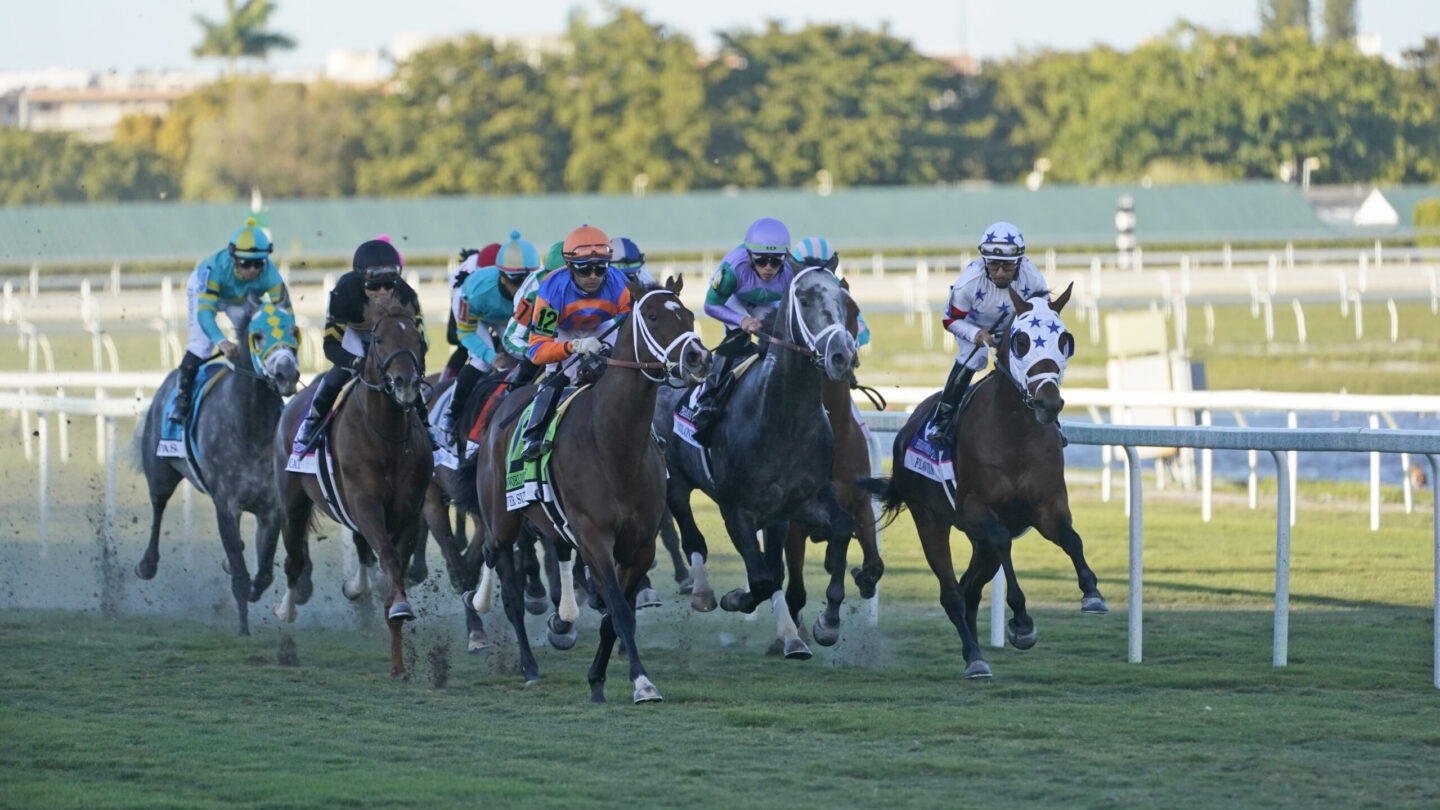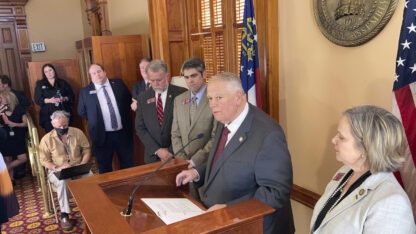Georgia voters could get a chance to legalize gambling on horse racing after a Senate committee on Wednesday passed a constitutional amendment, but the fate of the legislation remains uncertain.
The Senate Regulated Industries Committee voted to approve Senate Resolution 131, but did not act on the accompanying Senate Bill 212 that would allow up to five horse racing tracks with gambling anywhere in the state. Committee Chairman Bill Cowsert, an Athens Republican, pledged a vote on the accompanying bill in coming days.
Some Georgia lawmakers typically attempt to expand gambling every year in the General Assembly, but none have been successful since voters approved a state lottery in 1992. The House has been less friendly to expansion efforts in recent years, but House Speaker David Ralston gave proponents new hope in January when he said “there is an appetite this session that I hadn’t seen before to do something,” suggesting proponents should focus on a constitutional amendment and leave until later the details of whether the state will legalize casinos, sports betting or horse-race betting.
No proposal has yet emerged in the House, although proponents are hoping for action before the March 15 crossover day, when legislation must make it out of its originating chamber. The House could also still act on Senate Bill 142, which authorizes sports betting regulated by the Georgia Lottery Corp.
Senators are taking a different approach, pushing forward a proposed constitutional amendment that would allow betting on live racing at Georgia tracks or betting on simulcast racing from other tracks. But the amendment advanced Wednesday would not allow other forms of gambling such as slot machines or casino table games at racetracks.
Cowsert said that was at the insistence of Senate Republican leadership. But that also led him to question whether horse racing would be financially viable without the additional support, which has become common at racetracks in other states as lotteries and casinos have expanded.
“That’s part of what worries me here, if it’s not possible for it to succeed without additional gaming revenue,” Cowsert said.
Proponents, for their part, have been concentrating on the potential economic benefits of horse racing, pointing to a Georgia Southern University study that shows horse racing could boost the state’s economy by $1.28 billion a year and create 15,800 jobs over a decade. That includes projected spinoffs from thoroughbred breeding.
“We believe we’re going to create a new industry, the equine industry, that will bring $1.2 billion of economic impact to the state of Georgia, and it will particularly help rural Georgia with horse farms, hay farms,” said Sen. Brandon Beach, an Alpharetta Republican.
But Mike Griffin, who lobbies for the state’s Southern Baptist churches, said he believed that if legalized, horse racing advocates would push to allow other forms of betting. The churches oppose gambling as immoral and preying on poor people.
“It appears only rich people drinking wine and eating cheese is all this is about, but I tell you it’s going to go beyond that.”
If a majority of voters agreed to amend the state constitution, local governments would have to authorize horse tracks in their city or county. Under the proposed bill, the industry would be regulated by a state racing commission, and potential operators would have to pay a nonrefundable $500,000 to apply for a license and then $250,000 a year to renew the license. The state would get a 3.5% cut from all the money bet to fund certain priorities including education, health care and rural internet access.
Follow Jeff Amy on Twitter at http://twitter.com/jeffamy.









